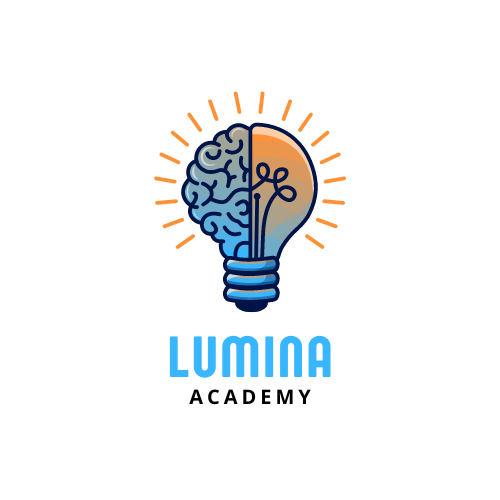Research-Based Principles of Education at Lumina Academy
Welcome to Lumina Academy, where our educational principles are grounded in rigorous research. We believe in utilizing evidence-based practices to foster effective learning environments that empower students to excel. Explore below to learn more about the research supporting our educational approach.
Research demonstrates the significant benefits of experiential-based learning approaches, which actively engage students in practical experiences. This approach is shown to enhance learning outcomes and student motivation:
Experiential Learning
-
Benefits of Experiential-Based Learning: A Case of Students’ Participation in the Project “Villages on Move Baltic”Source: [ResearchGate]
Power of Experiential Education
- Experiential education empowers students by providing real-world learning experiences
- The Power of Experiential Education Source: [Association of American Colleges & Universities]
WHEN STUDENTS ARE ENGAGED AND MOTIVATED AND FEEL MINIMAL STRESS, INFORMATION FLOWS FREELY THROUGH THE AFFECTIVE FILTER IN THE AMYGDALA AND THEY ACHIEVE HIGHER LEVELS OF COGNITION, MAKE CONNECTIONS, AND EXPERIENCE “AHA” MOMENTS. SUCH LEARNING COMES NOT FROM QUIET CLASSROOMS AND DIRECTED LECTURES, BUT FROM CLASSROOMS WITH AN ATMOSPHERE OF EXUBERANT DISCOVERY
4 C’S OF EDUCATION
- Preparing 21st century students for a Global Society: A Guide to Four C’s by the National Education Association
- Combining the 3 R’s and the 4 C’s by Tech4Learning
- A Guide to the “Four Cs”: Communication, Collaboration, Critical Thinking, and Creativity. Source:[National Education Association (NEA)]
Student-Centered Approaches
- When the Focus is on the Student, Not the Class. Source:[NPR]
“SITTING IN ROWS AND LISTENING TO CONTENT DELIVERED THROUGH A LECTURE IS SLOWLY BEING REPLACED WITH ACTIVE LEARNING ENVIRONMENTS WHERE STUDENTS ARE PROMPTED TO ASK QUESTIONS, SEEK OUT RELEVANT INFORMATION, AND APPLY INFORMATION, NOT JUST REMEMBER IT.” – Linda Darling-Hammond
BLENDED LEARNING (ONLINE + IN-CLASSROOM):
- The effectiveness of Blended Learning Environments by Dr. Meltem Eryilmaz, Atilim University
- A Comparative Study of Blended Learning versus Traditional Teaching in Middle School Science
- The effectiveness of online & blended learning by SRI International
- Blended Learning by University of Central Florida
- Blended & Online Learning Research by Vanderbilt University
STUDENTS IN THE STUDY SCHOOLS EXHIBITED GREATER GAINS IN ACHIEVEMENT THAN THEIR PEERS, HAD HIGHER GRADUATION RATES, WERE BETTER PREPARED FOR COLLEGE, AND SHOWED GREATER PERSISTENCE IN COLLEGE
MULTIAGE DOES NOT TRY TO FIT THE CHILD TO THE PRE-DETERMINED CURRICULUM, BUT RATHER CHOOSES A BROAD-BASED CURRICULUM TO FIT THE NEEDS OF THE CHILD.
MULTI-AGE CLASSROOMS
- On the merits of multi-age classrooms by David Pratt, PH.D
- Multiage Programming Effects on Cognitive Developmental Level and Reading Achievement in Early Elementary School Children by Fosco et. al
- The advantages and disadvantages of multi-age classrooms: Center for Evaluation and Education Policy
- The multi-age classroom: What research tells the practitioner by Sandra Stone
- Multi-age Classrooms: An Age-Old Grouping Method Is Still Evolving: Harvard Education
- The Atlantic: Inside a multi-age classroom
MASTERY-BASED LEARNING
- The neuroscience of joyful education by Dr. Judy Willlis
- The case against grades by Alfie Kohn
- Teaching more by grading less by Jeffrey Schinske and Kimberly Tanner
- Ted Talk: Do schools kill creativity by Sir Ken Robinson
- NYTimes: A New Kind of Classroom: No Grades, No Failing, No Hurry
- The Atlantic: Love of Learning More Predictive of Success than Grades
-
What Does the Research Say?Source: [Modern Classrooms]
MOBILITY IN THE CLASSROOM
Additional Research Sources
- [Nature: “Impact of Experiential Learning Model on Self-Efficacy and Career Decision-Making” (2018)]
- [ScienceDirect: “The Influence of Experiential Learning on Students’ Social Responsibility” (2019)]
- [Springer: “Interactive Engagement and Physics Outcomes” (2023)]
- [PubMed Central: “Examining the Impact of Mastery-Based Grading on Student Outcomes“]
- [JSTOR: “The Effects of Experiential Learning on Student Achievement“]
- [ERIC: “Impact of Mastery Learning on Students’ Achievement and Attitudes Towards Chemistry“]
- [Taylor & Francis Online: “Experiential Learning and Student Engagement“]
- [ScienceDirect: “Problem-Based Learning and Communication Skills“]
- [Grand Valley State University: “The Impact of Inquiry-Based Learning on Student Motivation“]

